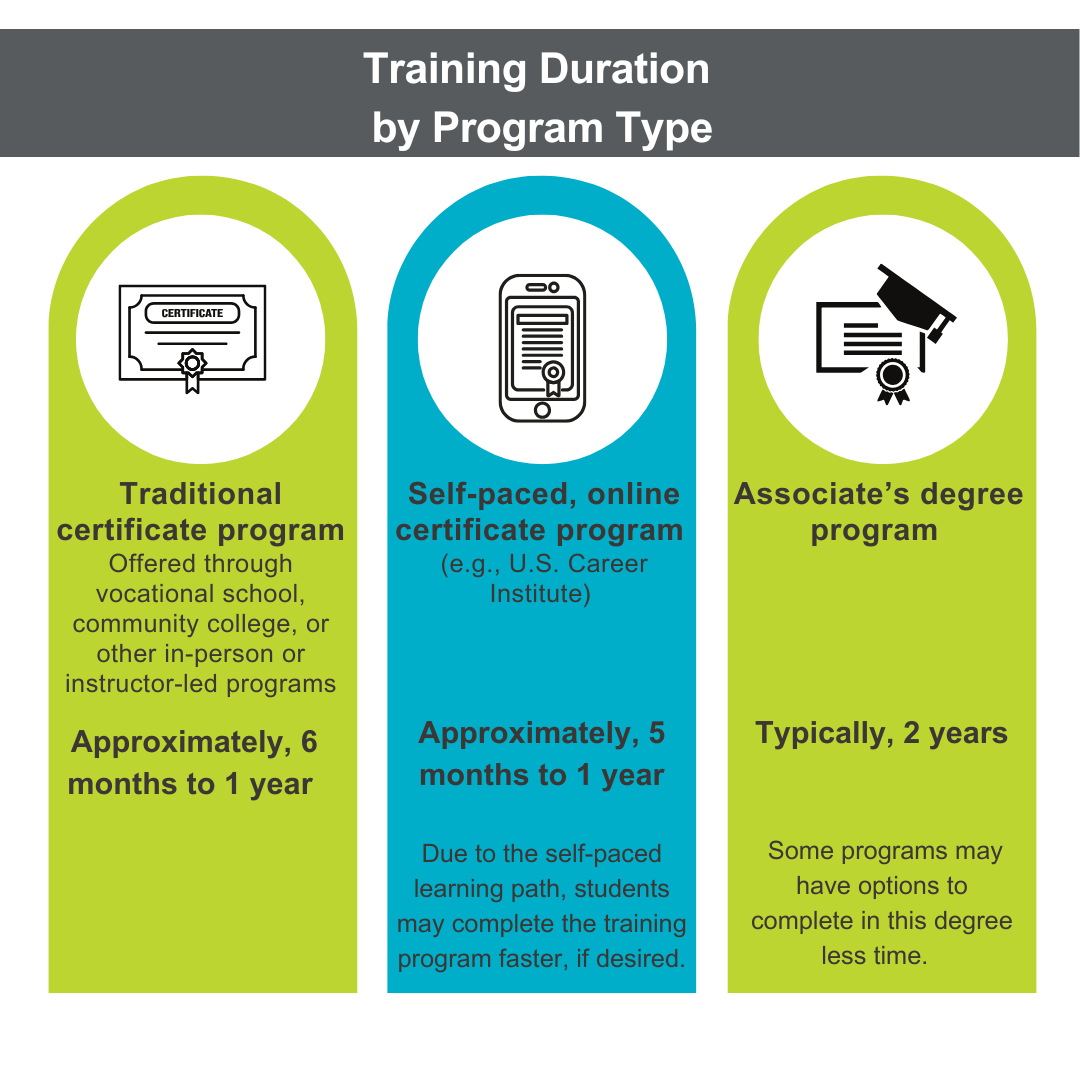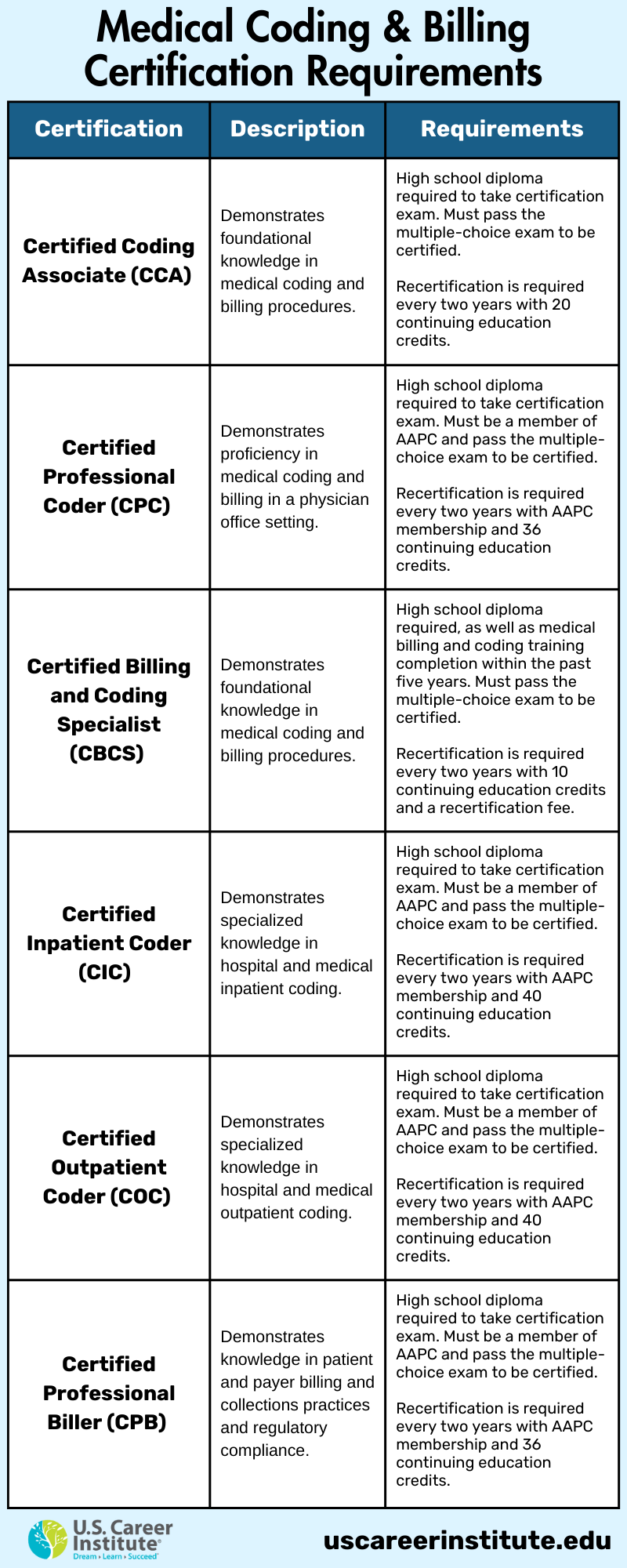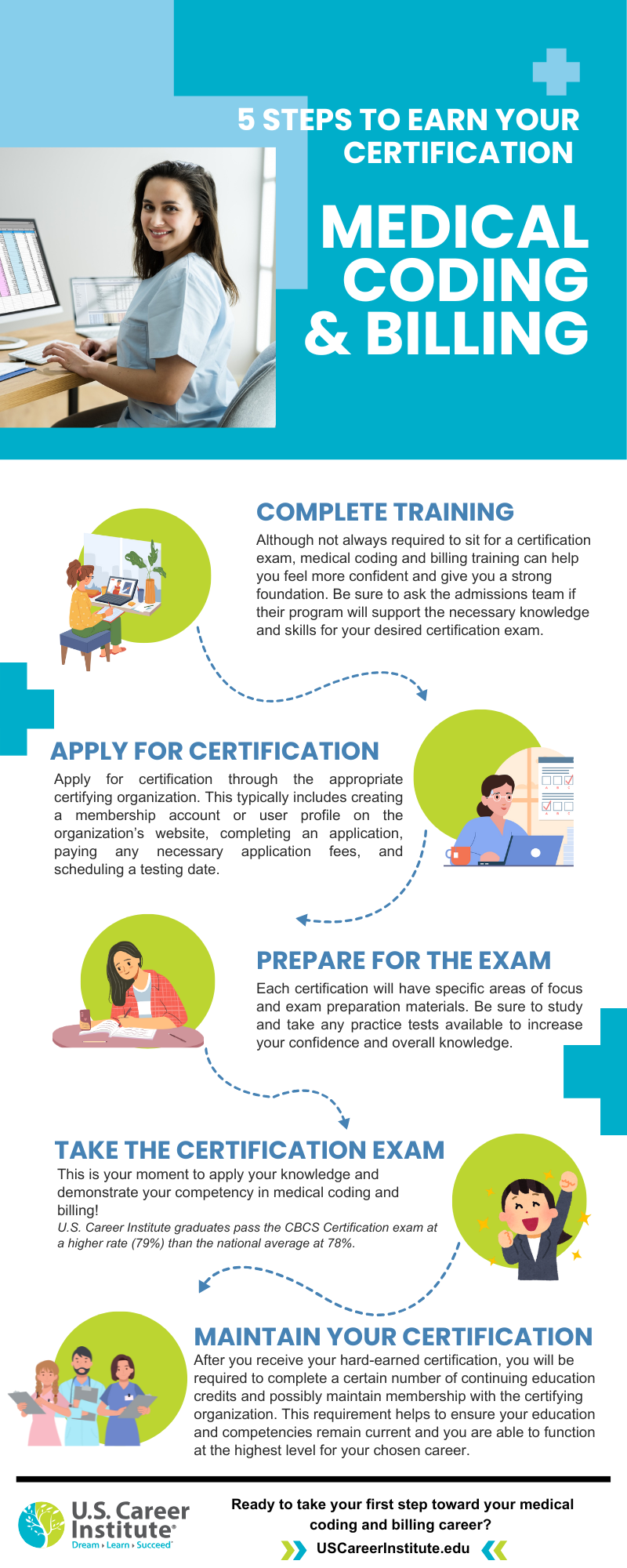Exploring a Career in Medical Coding and Billing
By: Jenn Brusco
October 2024
Healthcare professionals are in high demand across a variety of specialties. Medical coding and billing professionals are no exception. According to the U.S. Bureau of Labor Statistics (BLS), the demand for professionals who handle coding and billing functions is expected to grow much faster than average through 2033, with a median salary of $48,780.
Medical coding and billing professionals are essential to the healthcare revenue cycle. Their attention to detail and specialized knowledge allow healthcare teams to accurately record medical information and services, as well as submit healthcare claims to relevant insurance agencies for reimbursement.

Although medical coding and billing are closely aligned, they serve different functions. Medical coding occurs every time a patient interacts with a healthcare provider. There are specific medical codes used to identify patient diagnosis, procedures, equipment, supplies, and more. These codes enable healthcare teams to accurately identify and record all aspects of the patient interaction and associate them with the appropriate fee.
Next, medical billing will take those codes and translate them into an appropriate bill for services rendered. That bill will be submitted to the patient’s insurance company for reimbursement. If the patient does not have insurance or if the insurance company pays only a portion of the full bill amount, the medical billing professional will follow up with the patient to collect the remaining debt owed.
What Training or Education Do I Need for Medical Coding and Billing
According to the College Board, 48% of medical records specialists have a high school diploma or equivalent, 11% have a certificate, and 20% have an associate’s degree.
Most healthcare employers will require you to have a high school diploma or equivalent at a minimum. Reviewing open job requisites from job boards like Indeed or LinkedIn reveal that even beyond a high school diploma, many employers are seeking candidates with a basic knowledge of medical coding and billing practices as well as HIPAA and other healthcare regulations. Some employers also note a preference for certification.
Although not required, medical coding and billing training programs can support greater understanding and competency in the foundations of medical coding and billing, which may prove beneficial when you are ready to take a certification exam and start your new career.
A vocational school or community college typically provides synchronous training programs, with specific start and end dates and designated class times. You can expect to see online or in-person training formats combined with classroom lectures. This format will require you to schedule time to be in class (whether online or in person) during the week, which may be difficult to balance with existing obligations.
An online or self-paced training program, as you’ll find with the U.S. Career Institute, allows you to participate in virtual training labs and engage with online study materials without the confines of a regimented, in-person schedule. Instead, you can fit your training into your lifestyle and schedule, learning as fast as you’d like with maximum flexibility. As Toni M, a recent Medical Coding and Billing student from USCI, shared, “[I] signed up for the online, self-paced medical billing and coding course. It was very affordable, plus they had a back-to-school discount. I even got my friend to join. The open book part makes it very helpful to go back and find the info you need in the practice questions as well as the end of chapter test. Highly recommend this school!”
Some online programs may require attendance for a virtual class or lab at a specific day or time (i.e., synchronous). It’s important to assess the schedule requirements for the program and education provider you choose, giving you full visibility into the expectations for your participation.
Additionally, most schools also support career services and support to help you in your job search, when ready. Career services may include:
- Job search support
- Resume and cover letter preparation
- Interviewing skills
- Negotiation techniques
In either situation, it’s important to choose an accredited training program. For example, U.S. Career Institute is accredited by the Distance Education Accrediting Commission (DEAC). The DEAC is listed by the U.S. Department of Higher Education as a recognized accrediting agency. To maintain our accreditation, our curriculum, faculty, administrative procedures, and policies are regularly reviewed to ensure that we continue to meet high standards of quality.
How Much Does a Medical Coding and Billing Training Program Cost
Cost is an obvious and essential deciding factor in your training program selection. It’s not just about tuition expenses, however, there are several financial implications to be aware of when choosing the best program for you.
Be sure to consider the following direct and indirect expenses:
- Application fee
- Tuition – paid in full or payment plan options
- Study materials (electronic vs hard copy)
- Certification exam fees (post-training)
- Length of program (how quickly you’ll be able to earn a salary within your chosen profession)
- Program format and location and potential time away from work or family
- Housing
- Transportation and parking
- Computer or other technology requirements
- Additional program or school fees, as applicable
The cost of a medical coding and billing program can vary by institution and program type (e.g., certificate vs degree). A medical coding and billing certificate program can range from $1,000 to $5,000 or more. An associate’s degree program will range from $6,500 to $10,000 or more. Your exact cost will depend on the training provider, program format (online vs in-person), and level of training achievement (certificate vs degree). In addition to these training program fees, students can expect to pay several hundred dollars in certification exam fees and test preparation materials.
Becoming a medical coding and billing specialist requires an investment in your time, money, and attention … but that investment will pay you back with a satisfying and meaningful career that you can be proud of.
How Long Does A Medical Coding and Billing Training Program Take to Complete?
The time commitment needed to complete your medical coding and billing training program will depend on the program you choose.
Program duration also will depend on your availability to complete the training on a full-time or part-time basis. A full-time course load may be too intense for those who are also juggling family and a full-time job; and a part-time program may not feel as immersive for those who have the time and energy to move a little faster. Additionally, some programs will have a fixed timeline for completion, whereas a self-paced program will allow you to work and study at your own pace.
At the end of the day, choosing a training program is a personal decision. You must consider your current lifestyle, available time to devote to the program, financial commitments, and desired outcomes. There is no one-size-fits-all training program for medical coding and billing.

What Skills Will I Learn Through a Medical Coding and Billing Training Program?
To build your knowledge and competency in medical coding and billing, reputable and accredited training programs will provide education and skills assessments in the following areas:
- Medical terminology
- Coding systems: ICD-10, CPT, and HCPCS
- Medical billing processes and procedures
- Healthcare regulations, including HIPAA
- Healthcare insurance requirements
- Medical ethics
- Billing software and electronic health record (EHR) systems
- Anatomy and physiology
Additionally, your training program should provide support for soft skills, such as professional communication, time management, organization, critical thinking, and problem solving.
Completing your training is a valuable step toward becoming a medical coding and billing specialist, but there’s another step you must complete to maximize your earning potential and competitiveness in the job market: Earning your professional certification.
What Medical Coding and Billing Certifications are Recommended?
Although not required, a professional certification credential in medical coding and billing will further establish your credibility in the field, give you a competitive edge in your job search, and increase your salary potential. There are several professional certifications you may choose, depending on your personal and professional goals.
For entry level or early career medical coding positions, commonly recommended certifications include:
- Certified Professional Coder (CPC)
- Certified Inpatient Coder (CIC)
- Certified Medical Coder (CMC)
Additionally, recommended certifications that highlight medical billing include Certified Professional Biller (CPB) and Certified Billing and Coding Specialist (CBCS). See the chart below for more details and reference links relevant to these certifications.
A review of current job postings for medical coding and billing on Indeed shows most employers require a minimum of a high school diploma and foundational knowledge of medical codes and HIPAA regulations, while others also list a preference for a medical coding and billing certification. Some employers highlight specific certification preferences, such as the CPC certification.
If you are interested in seeking a specific certification, or if one is required by a potential employer, be sure to ask any prospective training provider whether their program will provide the right support to pursue that certification upon completion of the program. Do not expect every training program to set you up for success for any and every certification. Always ask first.

Note: This is not an exhaustive list of available certifications. Additional certifications are available by healthcare specialty (e.g., Certified Orthopedic Surgery Coder) or as your work experience increases. If you choose to explore medical coding and billing within a specific department or specialty, we recommend searching for certification within your desired specialty.
Basic Steps to Earn Your Certification
Once you have chosen a certification to pursue, the process for achieving this designation is fairly straightforward.

